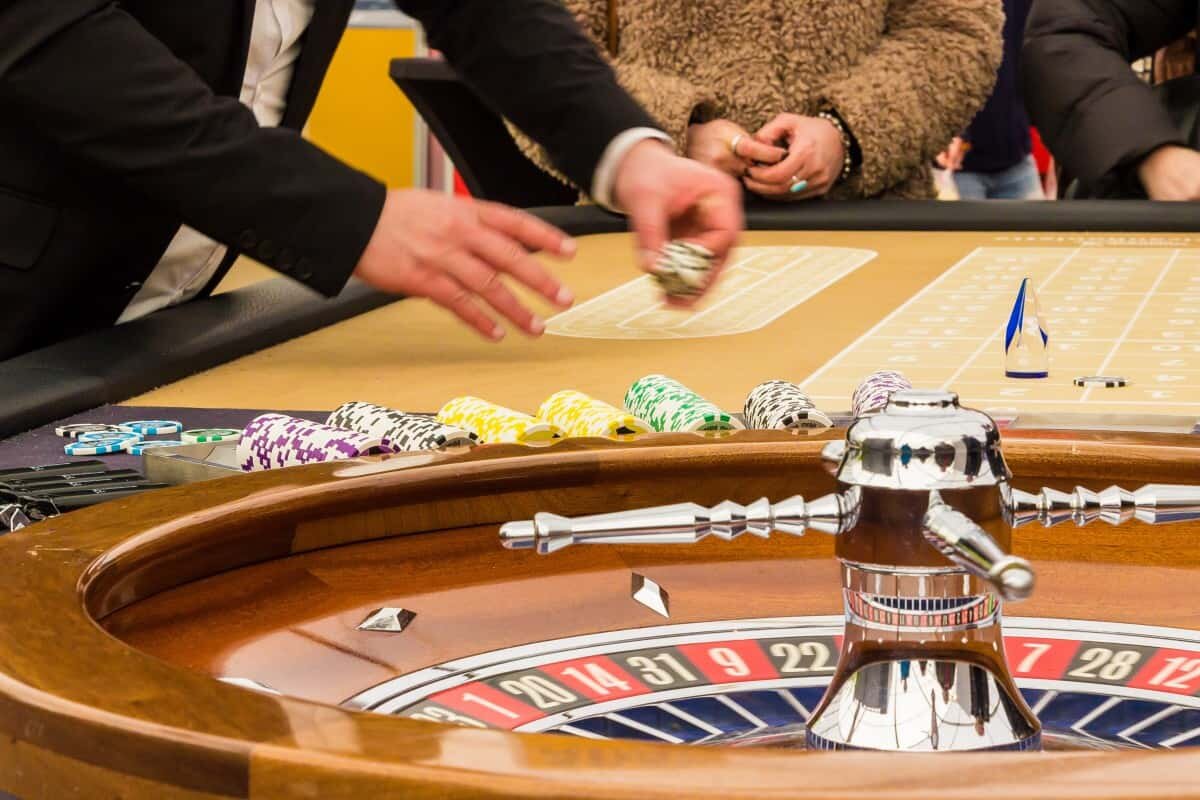Why The Martingale Strategy Wont Make You Rich
If you've been a regular gambler for any length of time there's no doubt you've heard about the numerous strategies people employ to try to beat the casino for consistent profit. One of these is the Martingale strategy, which is most usually employed in roulette.
We hate to break it to you, but there's no guaranteed way to consistently beat the house in any commonly played casino game. (The only potential exception to this is card counting in blackjack.) The Martingale strategy simply doesn't work, despite being used by lots of gamblers. Here's why.
What Is The Martingale Strategy?
The Martingale strategy can be used in games where the outcome is binary and the payout is 1/1, think either Red or Black in roulette or the flip of a coin.
Essentially, the strategy dictates that the gambler must place a single bet on either red or black. If the bet wins, then congratulations, you can take your winnings or keep playing. However, if you lose, the Martingale strategy dictates that you must double your bet and place it again. The bet must be redoubled every time you lose, until you win. Once you win, you can decrease your bet back down to the initial stake.
Theoretically, this method will win you infinite money and you will break the bank at every casino in the world. However, in the real world there are limits and restrictions that affect this strategy and make it a mathematical certainty that you will go broke instead.
How Does The Martingale Strategy Work?
The strategy works on the basis that every time you lose, you double your bet to gain back the losses from the previous losing spins.
This means if you start at £1 and lose your first bet, you will have to bet £2 on the next spin, this makes your total spend £3. If you win this second bet, you only get £4 back, meaning you are only £1 in profit. This remains true for any amount that you bet. For example, if you lose 7 times in a row, you will have lost £127 so far and are now forced to bet £128. If you win this eighth bet, you will win £256 but only be £1 in profit. In our opinion this makes the risk not worth the time for marginal reward.
You could make a lot of arguments that previous losses are not linked to the current spin and every win is profit regardless, but we would argue that by using this strategy of doubling you are linking your previous losses to your current bet size by default.
Why Is The Martingale Strategy So Popular?
The Martingale strategy is so popular because it is theoretically a foolproof way to beat the casino. Unfortunately, there are some practical reasons that the theoretical scenario does not play out in the real world.
To understand that the Martingale will not work you must be able to look ahead to the eventual downfall of the system. Too many people do not have this level of foresight and make risky bets as a result.
Why Doesn't The Martingale Strategy Work?
Betting Limits
All casinos have a maximum bet for every table, in order to protect against this exact strategy. Let's take the example of our local casino, Aspers in Milton Keynes. This casino has a £1,000 max bet on any spot in roulette and a minimum bet of £10 on red or black. This means that if we lose 7 times in a row (which is way more likely than you might think) we will have exceeded the max bet and can't continue any further. To add to that we would have lost nearly £2,000, all while trying to win £10.
Your Bank Account
For this strategy to work, you would need to have infinite money. (This would beg the question, why do you need more anyway?) Let's break it down.
If you bet £10 and lose once you will need to wager £20 in the next hand, then £40, and £80. This quickly gets very expensive. To mitigate the chance of an extremely long losing streak you would need to be able to cover an infinite doubling of the bet, which would require an equally infinite amount of money.
| Bet size | Total money lost | |
|---|---|---|
| Initial bet | 10 | 10 |
| 1 loss | 20 | 30 |
| 2 losses | 40 | 70 |
| 3 losses | 80 | 150 |
| 4 losses | 160 | 310 |
| 5 losses | 320 | 630 |
| 6 losses | 640 | 1270 |
| 7 losses | 1280 | 2550 |
| 8 losses | 2560 | 5110 |
As you can see, you are very quickly racking up some huge losses.
Is The Martingale Strategy Illegal?
Simply put, no, it is not illegal. It won't even get you banned if you are caught using it. The casinos would probably love to see you doubling your bet every time you lose because it means that soon enough they will have all your money. (Remember, while you do not have infinite money, the casino basically does.)
What Roulette Strategies Should You Use?
While no strategy will be a guaranteed way to make profit at the casino, it is still fun to have some kind of betting pattern or strategy when you play. After all, we gamble for entertainment, right?
There isn't anything wrong with playing the Martingale strategy as long as you understand the risk. At Lemons & Sevens, we'd far rather double our bets while winning, not losing. (Don't get us wrong here - just because you won one spin doesn't mean you are any more or less likely to win again, every spin is an entirely independent event and not reliant on the spin before it.)
In short, do what you like, it's your money. Just don't bet money you can't afford to lose, and don't be fooled into believing a nonsense strategy will work as a get rich quick scheme. The truth is, it's impossible to trick roulette with a betting strategy.






